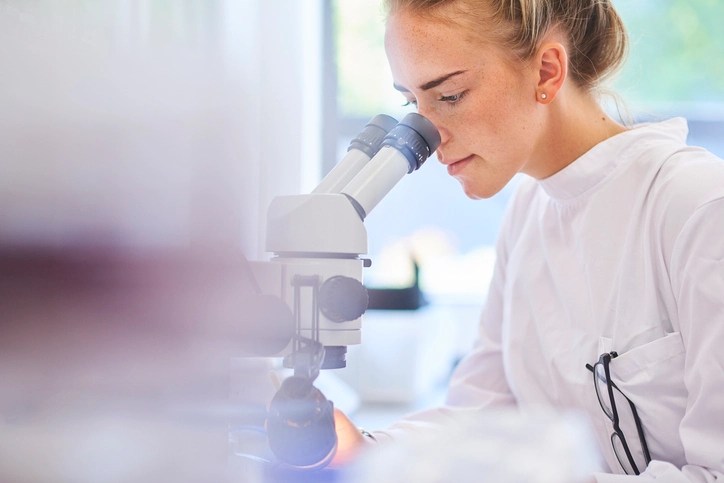The first-ever lab-grown ‘pigmented’ skin-equivalent has been developed

With recent developments of Artificial-Intelligence (AI) and new discoveries in biological research, the science field is undoubtedly exploding with new research findings. One recent release in particular comes from the likes of LabSkin, a service provider of human skin microbiology services to support product research and development activities in the cosmeceutical and pharmaceutical sector. LabSkin have developed an innovative first-ever lab-grown pigmented skin-equivalent model, for research into skin health and the development of skincare products.
“Our skin model is a 3D human skin equivalent that incorporates vital biological components to model normal skin function.”
LabSkin
Developed over 12 years with more than 30 scientific journal publications, it is made from young keratinocytes (human skin cells) and adult fibroblasts (metabolically-active, collagen-producing human skin cells). This allows for the facilitation of high quality skin research and tests available commercially for research and development.
What is incredibly fascinating is that the LabSkin team of researchers that developed these new ‘pigmented’ models incorporating melanocytes allow them to further assess safety and efficacy of skincare ingredients and formulations on a greater diversity of skin types, integrating ethnic skin with various microbiomes.
“The presence of melanocytes on the skin model also permits the study of causes and alleviation of hyperpigmentation, creates an ideal model to study UV exposure response and phototoxicity, and opens the door to establish reproducible melanoma models for the pharmaceutical industry.”
LabSkin
Dr David Caballero-Lima, Chief Scientist at Labskin, concludes: “This new model is allowing us and our clients to get a deeper understanding about melanin production in healthy and pathological stages, skin toxicology, drug metabolism and the host microbe interaction. It’s a critical development for the cosmetics and dermatological sectors to provide even more precise testing platforms to deliver first class, safe and efficacious products.”
The post The First-Ever Lab-Grown ‘Pigmented’ Skin-Equivalent Has Been Developed appeared first on SPA+CLINIC.
